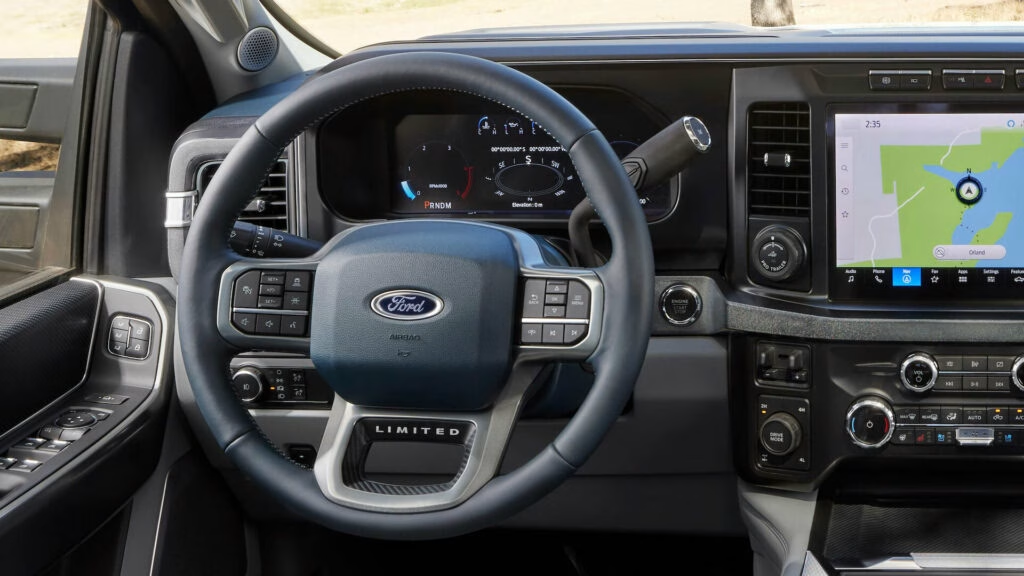Why Are So Many Ford Trucks Being Recalled Right Now?
If you drive a Ford F-Series pickup, you’re probably used to hearing about recalls. But this time, it’s not a minor fix—it’s a recall that affects over 350,000 trucks, including the 2025 F-150 and the 2025–2026 F-250, F-350, F-450, and F-550 models. The culprit? A glitchy digital instrument cluster that sometimes fails to wake up when you start the truck. Imagine hopping in, turning the key, and seeing… nothing. No speedometer, no warning lights, no info at all. Not exactly what you want from America’s best-selling truck.
What’s Actually Causing the Instrument Cluster to Fail?
Let’s cut through the technical jargon. The issue boils down to a memory protection feature in the instrument panel cluster (IPC), which was designed to keep things running smoothly. Ironically, it’s doing the opposite. During a specific moment when the truck’s computer is “going to sleep,” a signal can interrupt the process and trigger a memory fault. The result? The cluster doesn’t turn on at startup, leaving drivers in the dark—literally and figuratively.
Ford traced the problem back to a component made by Visteon, a major supplier of automotive electronics. According to the official safety recall report, about 65% of affected vehicles have ignition cycles that fall into the “window of susceptibility.” Translation: the older your truck gets, the more likely it is to act up. Ford started investigating after receiving the first report in January 2025, and by late June, they’d logged at least 96 cases (95 of which were warranty claims).
How Serious Is This Recall for Drivers?
On the surface, a blank instrument cluster might sound like a minor annoyance. But think about it: you lose access to your speed, fuel level, engine warnings, and other critical info. That’s a real safety risk, especially if you’re towing, hauling, or driving in unfamiliar territory. The National Highway Traffic Safety Administration (NHTSA) takes these issues seriously, as even a momentary loss of vital data could lead to dangerous situations on the road.
Fortunately, Ford hasn’t reported any injuries or accidents tied to this problem so far. But with over 350,000 trucks affected, the potential for trouble is too big to ignore. It’s a reminder that as vehicles get more high-tech, even a small software hiccup can have outsized consequences.
What’s Ford Doing to Fix the Problem?
Here’s where things get a bit more reassuring. Instead of making owners trek to the dealership, Ford is rolling out an over-the-air (OTA) software update. This update will simply disable the problematic memory protection feature, which should prevent the cluster from failing at startup. It’s a quick fix, but it also highlights how modern vehicles can be updated almost as easily as your smartphone.
If you own one of the recalled trucks, keep an eye out for a notification from Ford. The company is working to push the update as soon as possible, and you won’t need to do anything except accept the update when prompted. For drivers who prefer a hands-on approach, dealerships will also be able to perform the update if needed.
Are Recalls Like This Becoming More Common?
It’s not your imagination—recalls are on the rise, especially for vehicles packed with digital features. According to data from the National Highway Traffic Safety Administration, the number of automotive recalls in the US has steadily increased over the past decade, with software-related issues accounting for a growing share. Ford, in particular, has set a record for recalls in recent years, a trend that’s raised eyebrows across the industry.
Why? As vehicles become rolling computers, the complexity of their systems means more opportunities for bugs to slip through. A single line of faulty code can impact hundreds of thousands of vehicles. The upside is that fixes can often be delivered remotely, minimizing hassle for owners. The downside? More frequent interruptions and the nagging feeling that your new truck might be a bit too smart for its own good.
What Should Ford Truck Owners Do Next?
If your truck is part of the recall, don’t panic—but don’t ignore it, either. Check your VIN on the official Ford recall website or the NHTSA database to confirm if you’re affected. Make sure your vehicle’s software is up to date, and watch for any notifications about the OTA update. If your cluster does go dark, contact your dealer right away. While the issue hasn’t caused any reported accidents, it’s not worth taking chances when it comes to safety.
The big takeaway? Keeping up with recalls isn’t about perfection—it’s about smarter adjustments. Start with one change this week, and you’ll likely spot the difference by month’s end. Your truck—and your peace of mind—will thank you.

